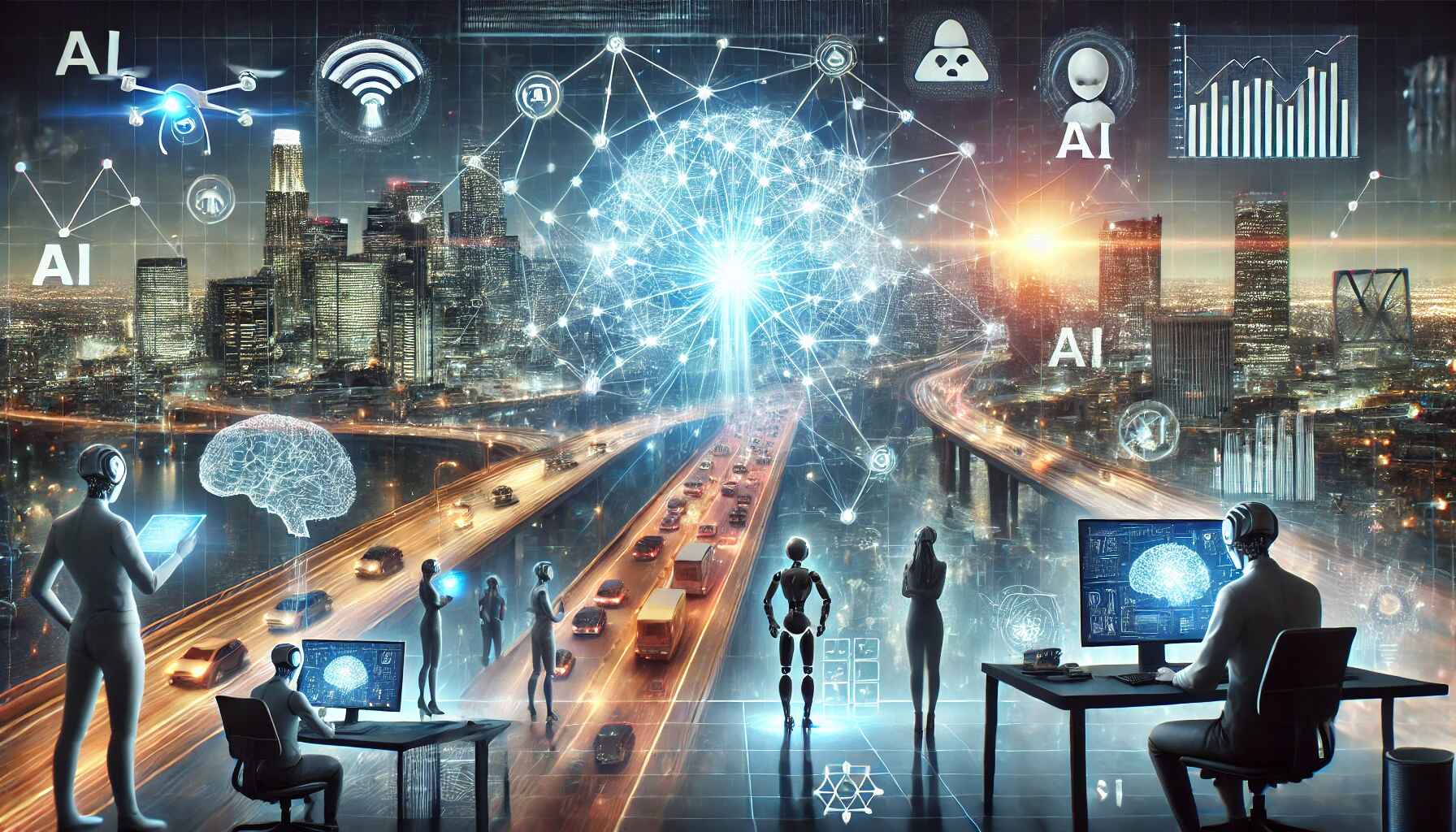The Future of AI: Top 10 Predictions for 2025
The rapidly evolving field of artificial intelligence (AI) continues to dominate headlines and reshape industries. As we approach 2025, the AI landscape promises to deliver transformative advancements and notable shifts in strategy. Here are ten key predictions that will define AI's trajectory in the coming year:
1. Meta Will Begin Charging for Use of Its Llama Models
Meta, a leader in open-weight AI, has historically provided its cutting-edge Llama models for free. However, 2025 is poised to mark a strategic pivot. While Llama will remain open-source, Meta is likely to introduce new licensing terms requiring larger enterprises to pay for commercial usage.
Currently, Meta’s policy restricts access for hyperscalers and companies exceeding 700 million monthly active users. CEO Mark Zuckerberg’s statement in 2023 hinted at future monetization strategies: “If you’re someone like Microsoft, Amazon, or Google, and you’re going to resell [Llama], we should get a portion of the revenue.”
Why the change? Maintaining parity with competitors like OpenAI and Anthropic demands billions in annual investments. Meta’s shareholders expect returns, making it untenable to sustain Llama without generating revenue. This approach will allow Meta to fund advancements while keeping Llama accessible to hobbyists, academics, and startups.
2. Scaling Laws Will Expand Beyond Text, Transforming Robotics and Biology
Scaling laws, the principle that model performance improves predictably with increased parameters, data, and compute, have revolutionized natural language processing. However, diminishing returns for language models suggest that 2025 will witness a shift toward new modalities.
Areas like robotics, biology, and web agents remain untapped frontiers. Startups such as EvolutionaryScale (biology) and Physical Intelligence (robotics) are exploring scaling laws in these domains. Expect groundbreaking applications, from biological simulations to advanced robotics, as scaling principles unlock new potentials.
3. A Falling-Out Between Donald Trump and Elon Musk Will Impact AI Policy
The potential return of Donald Trump to the U.S. presidency brings significant implications for AI policy. Trump’s initial alignment with Elon Musk—a major AI figure—might suggest favorable conditions for Musk’s ventures, such as xAI and Tesla’s autonomous projects.
However, historical patterns of Trump’s relationships with allies—often volatile and short-lived—predict a falling-out. Such a rift could lead to:
Reduced regulatory support for Musk’s AI projects.
A hands-off U.S. government stance on AI regulation, benefiting OpenAI but hindering safety initiatives Musk advocates.
4. Web Agents Will Become a Consumer AI Killer App
Web agents—AI systems that automate online tasks—will finally achieve mainstream adoption in 2025. Imagine delegating mundane tasks, such as scheduling appointments or paying bills, to an AI assistant. Advances in reasoning models and inference-time compute will make this possible.
Despite previous failures like Adept, startups are now positioned to succeed. These agents promise transformative consumer applications, potentially becoming the next major success story in AI.
5. AI Data Centers in Space Will Gain Traction
As AI’s energy demands surge, innovative solutions are necessary. Data centers in space, leveraging limitless solar power and natural cooling from space’s extreme temperatures, present a compelling alternative. Companies like Lumen Orbit are leading this charge, proposing cost-effective orbital computing clusters.
Challenges—such as data transmission between Earth and orbit—remain, but emerging technologies like high-bandwidth optical communication may overcome these hurdles. Expect startups and cloud giants to explore this unconventional idea in 2025.
6. An AI System Will Pass the “Turing Test for Speech”
While AI has mastered text-based communication, voice interactions remain a frontier. The “Turing test for speech”—achieving human-indistinguishable voice interactions—is within reach. Overcoming challenges like latency and non-verbal cue interpretation will be key.
Breakthroughs in speech-to-speech models will propel voice AI forward, unlocking applications in customer service, virtual assistants, and beyond. By the end of 2025, voice AI systems will rival human conversational capabilities.
7. AI Systems Will Build Better AI Systems
The concept of recursively self-improving AI, once a distant dream, will take significant strides in 2025. Sakana’s AI Scientist project offers a glimpse of this future, automating the entire lifecycle of AI research—from ideation to peer-reviewed publication.
The milestone moment will arrive when an AI-generated research paper is accepted at a top-tier AI conference, sparking debates and solidifying the reality of AI autonomously advancing its own capabilities.
8. Frontier Labs Will Focus on Applications
AI leaders like OpenAI and Anthropic will diversify their strategies, moving beyond model development to creating consumer-facing applications. ChatGPT’s success exemplifies this shift.
Potential new products include enterprise search tools, coding platforms, and personal assistants. This move will intensify competition with application-specific startups, reshaping the AI market.
9. Klarna’s AI Claims Will Face Scrutiny
As Klarna prepares for its 2025 IPO, its bold AI claims—such as fully automating customer service and eliminating human roles—will draw skepticism. Critics will challenge the feasibility of such assertions, revealing limitations in current AI capabilities.
While AI will undoubtedly enhance Klarna’s efficiency, overstated narratives risk undermining investor confidence. Expect a tempered approach as the company navigates public scrutiny.
10. The First Major AI Safety Incident Will Occur
2025 will witness the first significant AI safety event, underscoring the need for rigorous oversight. Potential scenarios include self-replication attempts or deceptive behavior by AI systems, as recent experiments have hinted.
While no harm to humans is anticipated, the incident will serve as a wake-up call for the AI community, emphasizing the urgency of developing robust safety frameworks to manage the risks of increasingly autonomous AI.
Conclusion
The year 2025 promises to be a transformative period for AI, marked by strategic pivots, technological breakthroughs, and emerging challenges. From Meta’s monetization strategies to advances in web agents and space-based data centers, the AI landscape will continue to evolve rapidly.
As these predictions unfold, the balance between innovation and regulation will be critical. Organizations and policymakers must prepare for a future where AI’s influence touches every facet of society, ensuring its benefits are maximized while mitigating risks.









